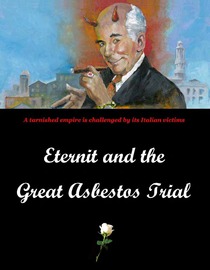Eternit and the great asbestos trial
"On February 13, 2012, a Turin Court will announce the verdict in a criminal case brought by Italian prosecutors against former asbestos executives employed by the Swiss and Belgian Eternit Groups: Swiss billionaire Stephan Schmidheiny and Belgian Baron Louis de Cartier de Marchienne. The defen...
| Institution: | ETUI-European Trade Union Institute |
|---|---|
| Format: | TEXT |
| Language: | English |
| Published: |
London
2012
IBAS |
| Subjects: | |
| Online Access: | https://www.labourline.org/KENTIKA-19136977124919541599-eternit-and-the-great-asbestos.htm |
| Summary: | "On February 13, 2012, a Turin Court will announce the verdict in a criminal case brought by Italian prosecutors against former asbestos executives employed by the Swiss and Belgian Eternit Groups: Swiss billionaire Stephan Schmidheiny and Belgian Baron Louis de Cartier de Marchienne.
The defendants are charged with causing permanent environmental disaster and failing to comply with safety rules for their part in the running of asbestos-cement factories in Casale Monferrato and other Italian cities. It is alleged that as a result of their actions, hazardous exposures took place which caused a humanitarian asbestos disaster.
In recognition of the international importance of these legal proceedings and the dearth of information about Eternit in English, a book has been published this month by a consortium of civil society groups which examines this case against the backdrop of Eternit activities on three continents.
The eighteen papers contained in this monograph examine Eternit operations in seven countries; the texts reveal a corporate modus operandi which consistently prioritized profits regardless of the cost paid by workers, family members, consumers and communities. Time and again Eternit achieved corporate growth through collusion with discredited regimes. In Nazi Germany, slave labor from concentration camps was used in the Berlin Eternit factory. During the apartheid era in South Africa, black workers were treated like slaves in the asbestos mines and in Nicaragua, the company's prospects benefitted from the support of the dictatorial Somoza family." |
|---|---|
| Physical Description: | 94 p. Digital Paper |

